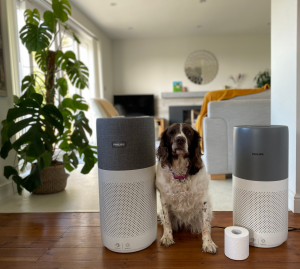General questions
My care home is considering taking part in the study, where can I find out more information? Please find information about the study page here. If you have any further questions, you can email us at: afric-study@bristol.ac.uk
If my care home decides to take part, how will I know which group it is in? You will be told whether you are in the ‘AIR FILTER’ or the ‘USUAL CARE’ group by a member of staff at your care home.
What information are you collecting about me? We are collecting information on your general health and daily infection symptoms such as coughs, colds and runny noses.

‘Air filter group’ questions
If I decide to be more involved in the study, what are the possible benefits and disadvantages or risks of taking part?
Benefits: The air filters being used in this study were first developed to clean the air of pollens and improve air quality. This means the air in your room could be cleaner, and it could help if you have allergies. The results from this study may help to influence how care homes are kept clean in the future.
Disadvantages or risks: Air filters have been shown to be very safe. They are widely used in lots of places, including people’s homes. If you find anything bothering you, we suggest you let the care home staff know.
As with any new piece of furniture in your room, you will need to be careful not to trip over it.
Unfortunately, we are unable to offer any payment for taking part in the study, but we will gift the air filter to the care home at the end of the study and make a contribution to the care home.
The ‘AIR FILTER’ group care homes will also continue using their usual infection prevention and control procedures, and we will provide them with air filters to use in communal spaces and staff rooms. The care home staff will also invite some residents to have an air filter in their bedroom.
What do the air filters look like? How big are they? The picture below shows a communal room filter on the left (dimensions are L 290 mm x W x 290 mm x H 645 mm) and a private room filter on the right (dimensions are L 274 mm x W x 274 mm x H 585 mm) with Bramble the spaniel in the middle and a standard-sized toilet roll for scale.

‘Usual care group’ questions
What are the possible benefits and disadvantages or risks of this study?
Benefits: Though there will be no benefits to you personally, we hope that the results from this study may help to influence how care homes are kept clean in the future.
Disadvantages or risks: There should also be no additional risk if you agree to take part in this study.
In the ‘USUAL CARE’ group care homes will follow their usual infection prevention and control procedures e.g. handwashing and surface cleaning.
